- Thursday, 19 February 2026
Bending The Rise Of Strong Men Politics
Strong men politics is characterised by its ability to influence decisions, mobilise fans and followers and display thoughtless crowds in the public sphere. Driven by envy, avarice and ambition, they wield enormous power that bypass institutional structures and statutes of political parties, polity and even the state. Strong men cultivate clientele networks and customary legitimacy even if elected by people or cadres, create blind cohorts within the party and control communication and strategy to steer institutional structure, isolate critical elements who oppose them and stay in power by co-opting influential leaders from other parties or applying coercive measures.
The nonstop socialisation of people to shape their cognition, habits, perception and judgments as per the spirit of Nepali constitution can democratise the private desire of strong men and orient them to the public use of politics. Strong men neither invent society nor grounded in them to seek support for the legitimacy of their authority, rule, personality and power. How do Nepalis back such strong men? On the basis of charisma, tradition, flashy promises, organisation control or lies? How can the modern electoral process replace their emergence, continuity and circulation? Strong men emerge when the national population is socialized into a looming crisis of uncertainty, instability and unpredictability of the political pathway. Hope lies in hard institutions and strong men who can secure their life, liberty and property. A stable future can come into sight if socialization and communication grasp the constitutional promise of basic needs of Nepalis with property rights, ownership and productive participation in the economic and political life.
Democratic centralism
Nepali political parties of diverse hues reflect different degrees of centrality in thinking, organising, and articulation according to their precepts. Left parties clearly declare the necessity of democratic centralism in their organisational life and those of their front organisations. It is yet to be debated how much centralization and how much democratic autonomy are needed for a democratic party. Now they no longer talk of either class war or withering away of Nepali state. The espousal of market efficiency has enabled most leaders to accept any kind of coalition politics in electoral and power games. All the parties face a suffocating milieu in practicing democracy in their inner life owing to the fear of losing grip in power and making the party functional at the local level whose site is shifting fast. Small parties except Nepal Workers and Peasants Party, orbit around big parties as they find wisdom in the Darwinian struggle for survival.
The persistence of hierarchic and patriarchic integration of Nepali society hints that social modernisation is overdue by the relic of feudalism. It limits a shift from leader-oriented identity of cadres to a concept of sovereign citizens able to exercise their political will. Irrespective of political array, top leaders wield, by statute, discretionary power to recruit loyalists in diverse committees without much deliberation. National party conventions are quickly held in a vertical style where local voices have tiny visibility thus forming an incongruity between the top and bottom of Nepali society. Now as ordinary people are politicised by their rights, they demand their realisation and activism. In their leaders’ obsession with intra-party struggle they see in such activism the twilight of a dawn in democratisation and delivery of public goods.
The strong men deemed as interest groups convert economic power into political power while political classes convert economic clout into political influence in a manner of utilitarian rationalism. It creates their immutable interdependence to perpetuate each other’s survival and progress at the cost of ordinary Nepalis. The political class provides legitimacy and tax-exemption while the latter provides resources for election campaign financing, leadership enrichment and, by implication, enlargement of patronage like in feudalism. In Nepal it has incubated state-decentred politics which habitually undercuts the possibility of formalization of politics as per the laws. The geopolitical instrument of regime change in Nepal in various phases of history has also institutionalised strong men patron and weak client ties attenuating the scope of national self-determination of politics and policy. Nepal’s foreign policy, lacking coherence and efficacy, has especially become its victims marked by a wide variety of faultlines on national issues. What it requires now is national consensus, not personalisation of external politics. The coordinating capacity of Nepali state so far weakened by partisan distribution of vital posts is equally crucial to put a brake on market-led destatisation, politics serving an area of privileges and the drain of labour, capital and brain reinforced by the cycle of syndicated regime which perpetuate strong men personality cult.
Conscious Nepalis support those parties who defend their interests, not those who only issue alluring idioms and favour clients or loyalists in a strong men style of patrimonialism where power is institutionalised in persons, not in institutions. Nepali leaders thus continually face the feelings of trepidation, fault and infamy for not expediting development efforts and consolidate the social base of democracy. The dialectic of inclusion and exclusion of Nepali parties has left the excluded loser of the political game which democratic system manifestly abhors. Strongman politics with weak ideas to lure people and resolve issues and conflict offers intellectuals a space for the fertilization of critical comments which in the long run can tarnish the image of leadership and its authority derived from elections, networks, group basis, political movements, causes of society through attractive appeal or spreading the parties’ gospels. The intellectual circle of Nepali parties must be able to update the knowledge and furnish ideas derived from the people for the articulation in public policies. Without local adaptation Nepali parties may suffer sterility and erode the social basis of their raison d'etre. The electoral trends amply show the swing in Nepali voters, cadres and leadership and an upswing of free-floating.
Democratic legitimacy rests on transforming personal domination into impersonal rule. In the informal polity personalisation of power remains rife. So does the evolution of inherited patterns of politics and the growth of a dynastic chain of leadership in civic institutions. The crisis of Nepal’s polity is, therefore, beset with patrimonial practice of leader-for-life. This is the reason mainstream political parties suffer from a situation marked by a lack of smooth succession of father figures to younger generations of various social classes. Power in patrimonial leaders is personalised but not entirely independent of loyal cadres blinded by the prospect of alternative leadership growth. This system remains stable so long as resources and positions flow can be amply distributed from strong men to the followers. Once this flow is dehydrated, supporters and clients drift to other strong men's sides. Depersonalisation of distribution can weaken the clout of strong men politics as it fosters democratic political culture where resources are shared by all stakeholders in an inclusive and meritocratic way. Such a system requires political institutionalisation and non-calculability of leadership-cadres-followers ties.
Factionalism
Factionalism in Nepali parties largely reflects political differences between entrenched leaders and the aspiring ones. The ordinary Nepalis, however, find a fusion of political stalemate and economic moribund and thus appear unable to alleviate their problems. Growing demands for generational change and social inclusion affects internal organisation of political parties and expands the social basis of political life for both recognition and representation and hence improves the democratic legitimacy of leadership. Social emancipation of Dalits and women has taken a new turn. The voice of small minorities has also become laudable to enhance the depersonalisation of power. The global tides of decolonization and national self-determination are based on the popular sovereignty of people. Strongman politics has a tendency to infantilize the people, state and polity and informalize political and economic power so that both the spheres are fragmented, empowering leaders to execute, divide and rule and command and control political strategy where people have hard time to organize collective action. Both internal and external legitimacy are essential—the first is grounded in popular sovereignty, acquired through electoral process and performance of leaders especially in providing social, economic and political opportunities and second to alleviate scarcity and get recognition that the rule is just and fair not governed by economic determinism.
A mass of political forces has surged in Nepal which does not believe in social norms, laws and processes, stifles the constitution and institutions and indulges in maneuverings thus negating the prospects for reforms in the polity. Mainstream political parties of Nepal do not have any bulwark to stem reckless populism and radicalism other than to perform and earn the trust of people. Democracy requires fellow feeling between leaders and people and constant communication and feedback to bridge the psychological gaps so that its dynamics can be sustained and timely response and reforms in political culture initiated. Critical masses of public intellectuals of Nepal are struggling to end dynastic succession of leadership and strong men politics running like business as usual rolling over the nation for long without meritocratic performances. The commercial media, like the ideologically indoctrinated ones, have conformist orientation and, therefore, bear corrosive effects on the emergence of a vibrant public sphere where informed public opinion is shaped and toleration of different viewpoints sustained for accommodation in the political process. Nepal also needs to promote civic nationalism that can tame strong men politics, crass individualism, reckless populism, authoritarianism, feudalism and unaccountable elitism. This can prevent the penetration of predatory forces into its political economy and stem the simmering crisis raging the nation.
(Former Reader at the Department of Political Science, TU, Dahal writes on political and social issues.)



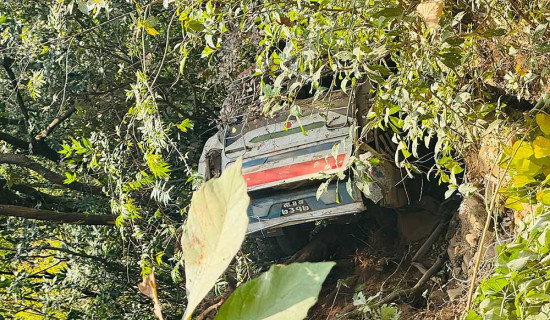
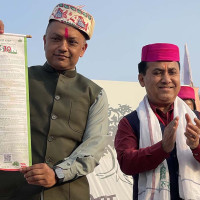
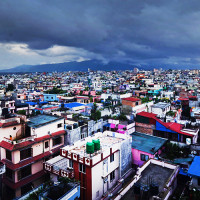
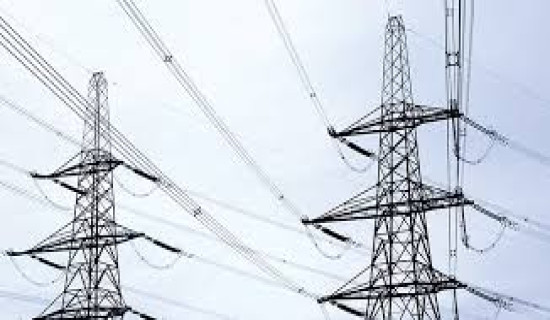
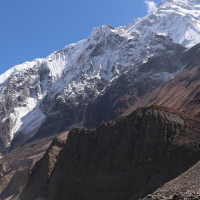
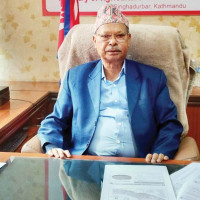
-original-thumb.jpg)






